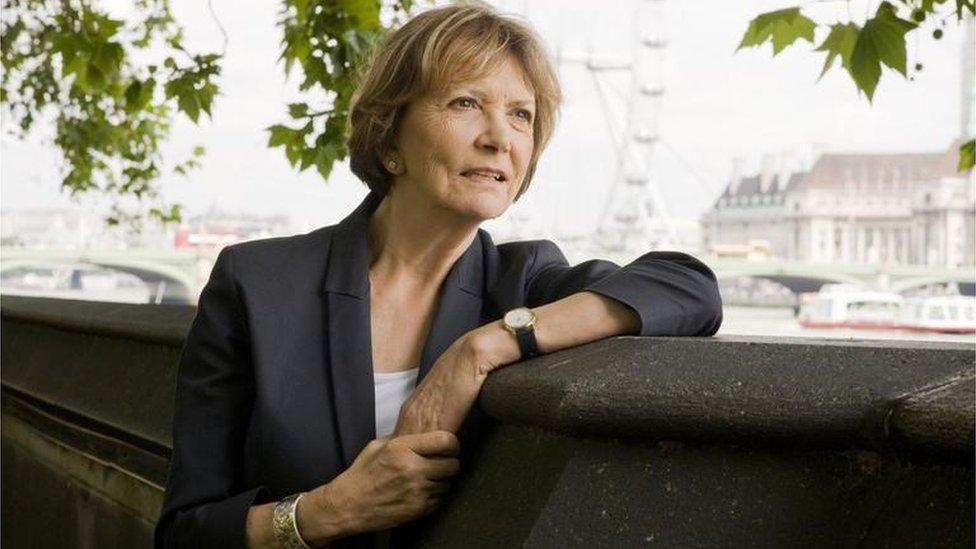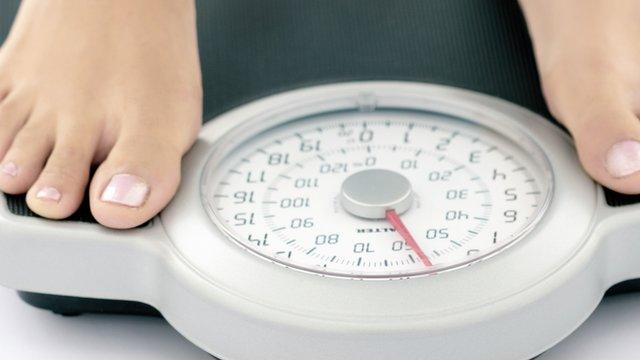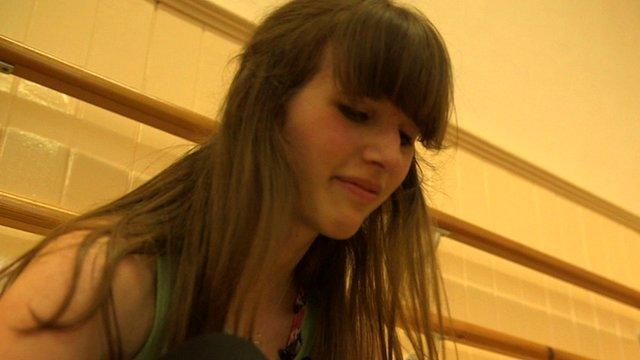Joan Bakewell says teenage anorexia a sign of narcissism
- Published

The rise of eating disorders such as anorexia among teenagers is a sign of "narcissism" in society, broadcaster Baroness Joan Bakewell has said.
In an interview with The Sunday Times, external, Baroness Bakewell, who is chairing the Wellcome book prize panel, said she was "alarmed" by the illness.
"No one has anorexia in societies where there is not enough food," she said.
It was "a sign of the overindulgence of our society, over-introspection, narcissism really," she added.
Baroness Bakewell's comments prompted a response from Time to Change, a mental health anti-stigma campaign run by the charities Mind and Rethink.
A spokeswoman said: "Anorexia, just like any other mental health problem, is a genuine and debilitating condition, with complex causes.
"The stigma and misunderstanding surrounding these issues only makes life harder for people going through them - so what we need is increased understanding and support."
'Public discussion'
The Labour peer's comments also prompted debate on social media.
In response to criticism from one parent on Twitter, she said, external: "It's not your daughter who's narcissistic: it's the culture."
Baroness Bakewell, 82, also went on to tweet, external: "If I've stirred a public discussion about anorexia... Good. Let's have more research and information."
And when asked by one Twitter user if she had been misquoted or misinterpreted by the newspaper article, she replied, external: "Misinterpreted: I am deeply sad that young people get anorexia and was speculating loosely about what might cause it."
Hospital admissions for eating disorders in England have been increasing, figures suggest, external.
In the 12 months to October 2013 there were 2,560 admissions, which was an 8% rise on the previous year, statistics from the Health and Social Care Information Centre (HSCIC) show.
'Beautiful and healthy'
There were nine times more females than males taken to hospital, and the most common age for female admissions was 15 years old, the figures also suggested.
The Royal College of Psychiatrists has previously said that increases in hospital admissions could be down to social pressure made worse by online images.
Baroness Bakewell told the newspaper that anorexia was "one example of the way [young] people have become very self-regarding".
She said: "I am alarmed by anorexia among young people, which arises presumably because they are preoccupied with being beautiful and healthy and thin.
"No one has anorexia in societies where there is not enough food.
"They do not have anorexia in the camps in Syria. I think it's possible anorexia could be about narcissism."
'More liberated'
In the newspaper interview she also said that today's teenagers were "more introspective and body-conscious".
"Everyone does these surveys that show schoolchildren are worried about their bodies, or are not happy.
"We had no chance to discuss that when we were young. We just had to survive.
"If you ask people 'are you really happy?' it gives them a chance to think about things they are not necessarily concentrating on."
But she also said that youngsters today had become "more liberated about their bodies".
Among those who responded to Baroness Bakewell's comments online was research student at King's College London, Emma Seaber, who wrote a blog , externalin reaction to the claims made.
In it she says: "Bakewell's view is symptomatic of a broader misunderstanding of eating disorders.
"And her presentation of her opinion in the national press is part of a media trend propelling pervasive beliefs about the influence of mass media on anorexia incidence or on 'prospective' anorexia patients."
Pledge for treatment
The NHS describes anorexia, external as a "serious mental health condition", which can affect both men and women. It also cites missing meals, taking appetite suppressants and having physical problems such as feeling lightheaded and having dry skin as among its symptoms.
Earlier this year, Prime Minister David Cameron pledged to ensure teenagers with eating disorders would receive treatment more quickly.
From 2017-18, a new waiting time measure will track the proportion of patients being seen within a month of referral, or within a week for urgent cases.
The shortlist for the Wellcome book prize - which rewards the best book, fiction or non-fiction, that involves health, medicine or illness - will be revealed on Monday.
The winner is announced on 25 April.
- Published27 July 2015

- Published3 June 2015

- Published27 July 2015
